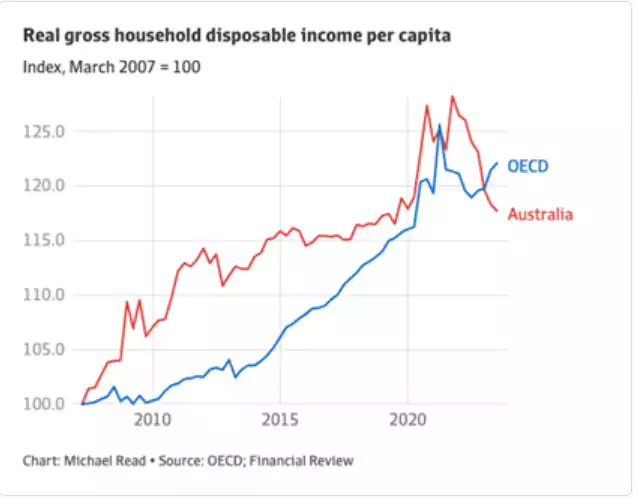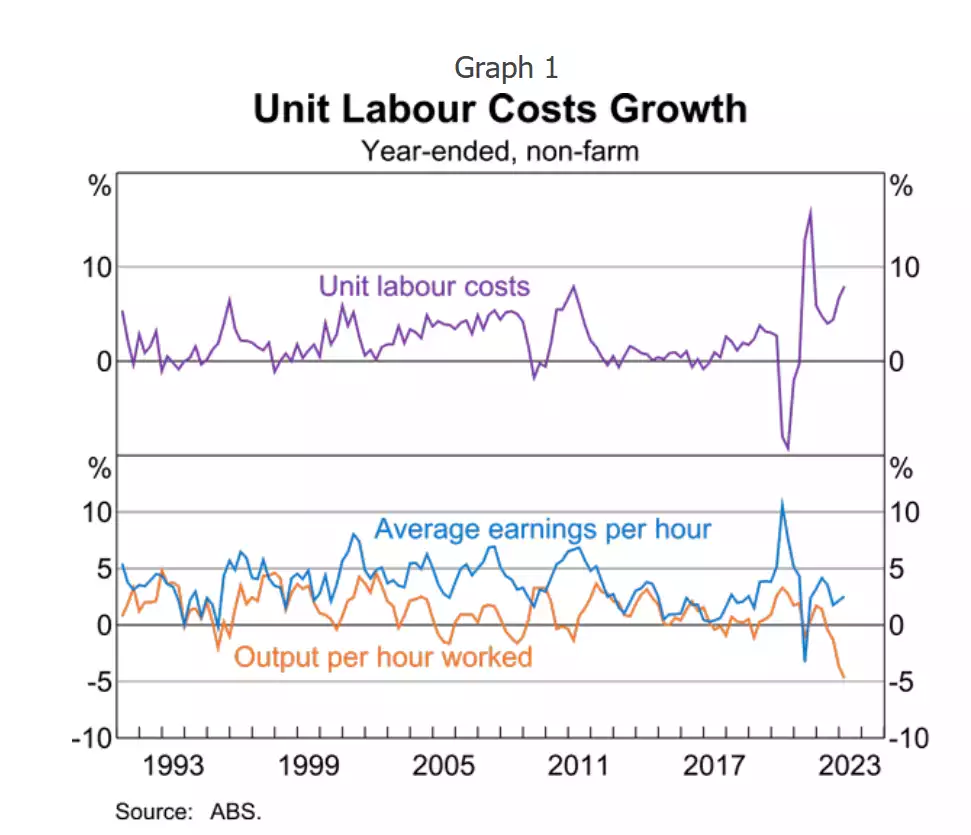Government Spending: The Legal Addictive Drug
News
|
Posted 08/05/2024
|
2899
When you go to the bank to take cash out because of all the crazy compliance and our nanny state, they now often ask what it’s being spent on. If you answer ‘cocaine and hookers’ (like the now famous video of comedian Jon-Bernard Kairouz going from bank to bank giving such responses to this question) the bank may deny you as this breaks a government rule. Then, who is asking the government what they’re spending it on, because it’s about as effective as cocaine and hookers. It’s not just Australia but around the world nations are beginning to notice the migration band aid is failing, industries and businesses are floundering, productivity is collapsing, and inflation is roaring. All because of ineffective and high government spending coupled with extra compliance and red tape for what is left of hollowed out industries. We’ve been focusing a lot on government spending and its multiplier on inflation, but today we take you on a red tape journey on how your taxes are being spent to ensure everything costs more, competition continues to fail, and innovation is non-existent.
Read Between the RBAs lines
Once again, the Central Bank continues to signal that they have only one tool to fight inflation. Reading between those lines, governments and their policies probably have more impact on inflation. RBA governor Michelle Bullock decided to hold rates at yesterday’s meeting stating:
“…the best thing that I can do for them (people who are struggling) is to try and get inflation back down so that they don’t have to worry about the process of their everyday things continuing to go up. That’s the best thing I can do for them. I understand interest rates hurt, but that’s the tool I’ve got, and that’s the best thing I can do for them.”
Unlike the RBA governments can influence inflation through spending, employing and probably the most neglected right now – removal of red tape to reduce prices. Time after time monopolies in Australia are explored – but one question that is never asked is ‘how have we got so many monopolies’ in the first place. Genuinely it seems starting any company in Australia right now to compete with any monopoly is near impossible due to the red tape and hoops any entrant must clear. In fact, the only companies that seem able to compete are outside companies like Aldi who see the supersized profits being made in Australia and decide they have enough ammunition to compete. But I wouldn’t say there are new home-grown options on every corner, as the red tape and jungle of paperwork to get through is too big of a task for small companies.
Governments used to compete to bring industry, innovation, and jobs to Australia, but then complacently stopped and blamed those industries for costing Australian taxpayers too much, most notably the car industry. Rather than constantly looking for new industries or expertise, we decided government employees were better used to regulate what we had left rather than working with business. The government became a wall that few entrepreneurs wanted to face.
Red tape in government
Aside from inflation, which seemingly is being driven by government demand and housing costs (driven by interest rate rises being forced on the RBAs only tool), employment seems to be resilient, keeping a lid on a recession and therefore possible rate cuts.
Michelle Bullock pointed out today that most jobs recently have been in education and health, which makes sense except when you understand the possible reason why.
Let me give you a scenario that doesn’t bode well for the future Australian economy. Using education as an example, I am told by people in this industry that they are spending less and less time teaching and more and more time analysing and box ticking. The fact that they are spending less time doing the job they are being paid for means we need more teachers doing less productive work. Additionally, by encouraging teachers to answer surveys and box tick, teaching is becoming more generic.
Humans are different, children and adults learn in different ways, when teachers could just teach, they may have found different ways to teach different children. By taking time away from teachers to teach they have taken innovation and creativity away from future generations.
If these productivity losses are being seen in government industries such as education and we are trusting the direction of the government in managing compliance and red tape in industry – is it any wonder Australian productivity growth is amongst the worst in the Western world.
Unseen Effect of regulation
In an interesting study 2015 How the Unseen Effect of Regulation Harms Economic Growth | Mercatus Center, data suggested in the U.S. regulation increased 28% from 1997 to 2012, in addition the study observed
- Federal regulations decrease new hiring.
- Businesses are never started as potential entrepreneurs are discouraged.
- The more regulated the industry the fewer the entrants into the market.
Seems logical right? But it seems like businesses are constantly evolving to stay competitive, the government has evolved to become anti-business and pro red tape. They are addicted to the fees, levies, and jobs with no ability to innovate regulations or regulatory environments to help business. When was the last time a ‘pro business’ local or government employee walked into your door, being rewarded for thriving businesses in their jurisdiction rather than taxes they have raised to.
Government Departments with their own agendas
In some State government areas, that for this article will remain nameless we have seen 2 different government agencies flexing rules that meet their departments regulations, with no consideration of another government agencies breaking of rule, with the businesses torn between breaking one rule to meet another. It is no wonder entrepreneurs give up before starting.
Australia’s competitive decline
Delving into the International Institute for Management Development World Competitive Index, Australia’s business environment continues to decline, from the heydays of cheap energy, thriving manufacturing and Howardesque red tape destruction ranking Australia number 1 in 2004 for business resilience. That same year we ranked 3rd for legal and regulatory frameworks – currently falling to 19. It’s no wonder that without genuine economic reform agenda since then we now rank 52/64 for Economic competitive and even more disturbingly 62/64 for Entrepreneurship.
Australia going backwards fast
In November 2023, the OECD identified Australia as having the worst decline in disposable income of all OECD countries, bringing us back 5 years.

This has led to March retail figures falling in March by 0.4%. Add migration to the equation and households are pulling back nearly 5%. This linked with our much-touted productivity issue, with businesses paying more per hour to receive less in labour productive output.

Future Australia has a huge problem, we are falling in competitiveness due to lower productive output, entrepreneurs are disappearing, and red tape is growing. Something will need to be done to address this long-term decline – but without genuine economic framework reform, and governments who spend on cocaine and hookers, this is looking more and more unlikely.